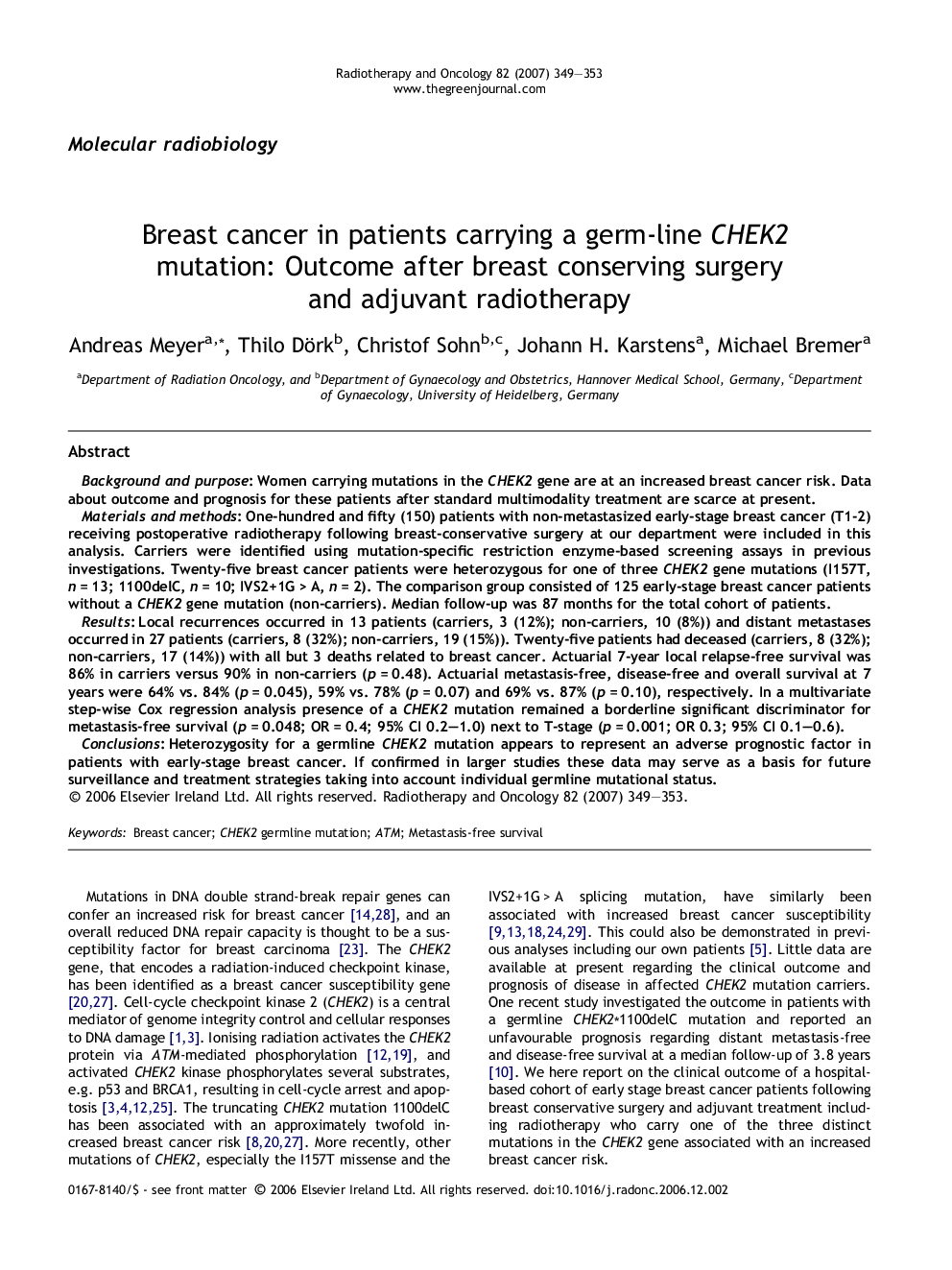| Article ID | Journal | Published Year | Pages | File Type |
|---|---|---|---|---|
| 2161092 | Radiotherapy and Oncology | 2007 | 5 Pages |
Background and purposeWomen carrying mutations in the CHEK2 gene are at an increased breast cancer risk. Data about outcome and prognosis for these patients after standard multimodality treatment are scarce at present.Materials and methodsOne-hundred and fifty (150) patients with non-metastasized early-stage breast cancer (T1-2) receiving postoperative radiotherapy following breast-conservative surgery at our department were included in this analysis. Carriers were identified using mutation-specific restriction enzyme-based screening assays in previous investigations. Twenty-five breast cancer patients were heterozygous for one of three CHEK2 gene mutations (I157T, n = 13; 1100delC, n = 10; IVS2+1G > A, n = 2). The comparison group consisted of 125 early-stage breast cancer patients without a CHEK2 gene mutation (non-carriers). Median follow-up was 87 months for the total cohort of patients.ResultsLocal recurrences occurred in 13 patients (carriers, 3 (12%); non-carriers, 10 (8%)) and distant metastases occurred in 27 patients (carriers, 8 (32%); non-carriers, 19 (15%)). Twenty-five patients had deceased (carriers, 8 (32%); non-carriers, 17 (14%)) with all but 3 deaths related to breast cancer. Actuarial 7-year local relapse-free survival was 86% in carriers versus 90% in non-carriers (p = 0.48). Actuarial metastasis-free, disease-free and overall survival at 7 years were 64% vs. 84% (p = 0.045), 59% vs. 78% (p = 0.07) and 69% vs. 87% (p = 0.10), respectively. In a multivariate step-wise Cox regression analysis presence of a CHEK2 mutation remained a borderline significant discriminator for metastasis-free survival (p = 0.048; OR = 0.4; 95% CI 0.2–1.0) next to T-stage (p = 0.001; OR 0.3; 95% CI 0.1–0.6).ConclusionsHeterozygosity for a germline CHEK2 mutation appears to represent an adverse prognostic factor in patients with early-stage breast cancer. If confirmed in larger studies these data may serve as a basis for future surveillance and treatment strategies taking into account individual germline mutational status.
